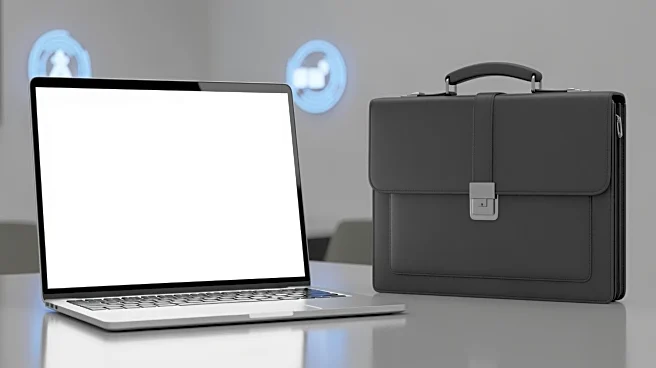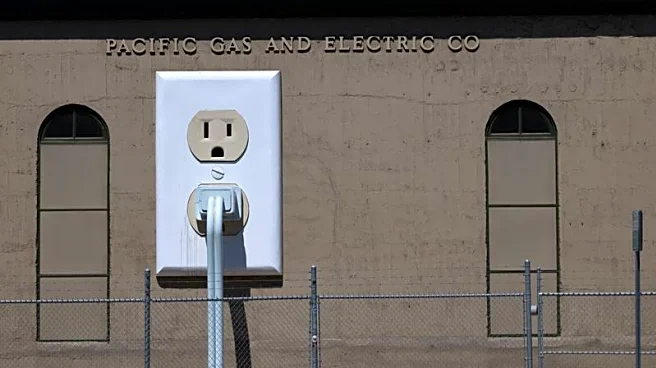What's Happening?
LinkedIn, traditionally a platform for professional networking, has seen a shift towards more personal content, akin to other social media platforms. This change has been driven by users seeking to connect
on a more personal level, as noted by marketing professionals like Dan Kelsall and Azadeh Williams. Kelsall, who has gained a significant following on LinkedIn, attributes this shift to a growing distrust in traditional brand marketing and a desire for authenticity. Williams echoes this sentiment, emphasizing the importance of being genuine to attract an audience. LinkedIn's editor-in-chief, Daniel Roth, acknowledges the platform's use of algorithms to tailor content to users, while maintaining that the core business model remains unchanged. The platform's evolution has been further accelerated by the pandemic, which encouraged users to share more personal experiences, including mental health discussions.
Why It's Important?
The transformation of LinkedIn into a more personal platform reflects broader trends in digital communication, where authenticity and relatability are increasingly valued. This shift has implications for how professionals and businesses engage with their audiences, potentially altering marketing strategies to focus more on personal storytelling and less on traditional corporate messaging. For LinkedIn, this evolution could attract a wider user base, but it also risks alienating those who prefer its original professional focus. The change highlights a growing intersection between personal and professional identities online, which could influence hiring practices, networking, and brand development.
What's Next?
As LinkedIn continues to evolve, businesses and professionals may need to adapt their strategies to leverage the platform's new dynamics. This could involve more personalized content and engagement strategies to build authentic connections. The platform's ongoing development will likely be monitored by industry leaders to assess its impact on professional networking and marketing. Additionally, LinkedIn's approach to content moderation and algorithmic curation may come under scrutiny as it balances personal expression with professional standards.
Beyond the Headlines
The shift towards personal content on LinkedIn raises questions about the boundaries between personal and professional life. As users share more personal stories, issues of privacy and professional reputation may arise. The platform's role in shaping professional identities could lead to discussions about the ethical implications of blending personal narratives with career advancement. Furthermore, the trend may influence cultural perceptions of professionalism and authenticity in the digital age.










